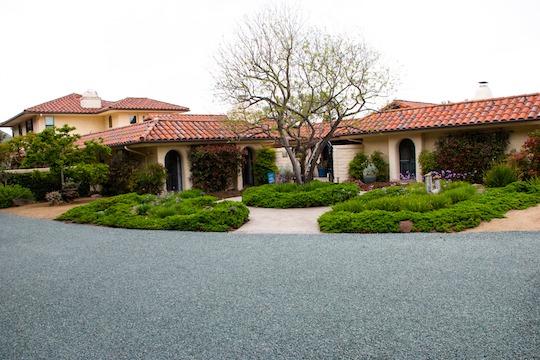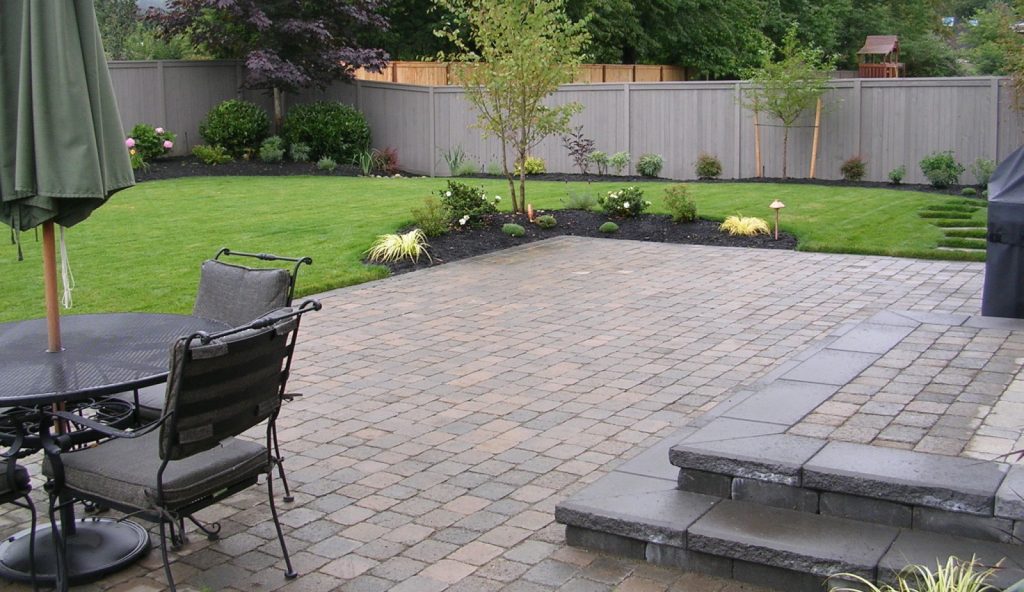Six questions to ask your asphalt contractor about this less-commonly used driveway treatment.
When the cost of pavers, concrete and asphalt steer a homeowner away from getting the driveway surfaced, they should consider a less expensive alternative: It’s called chipseal, or “chip seal”.
But here’s the kicker. Chipseal is a paving treatment that is sometimes used with the most expensive homes in the most expensive neighborhoods. That’s because chipseal, which is a looser form of asphalt that allows for the natural color of the stone used to determine the color of the driveway, offers aesthetic options. And not only for color: for some, the textured surface and slight crunch of the driveway is just the right look, feel and sound for the landscape.
Chipseal is a driveway treatment, also called “tar and chip,” that places crushed stone on top of a thin layer of bitumen. Two or three lifts (layers) of stone are compacted onto the bed, affixing the stones but not allowing the black tar to bleed through. There is some flex to the top layer but the gravel is not as loose as one might otherwise see on a country road.
It’s the stone choices that make this particularly interesting. The range is from a light sand to browns to greys and even black. The homeowner might engage a garden designer to help choose, as complementing or contrasting with the colors of buildings and landscaping are one of the key benefits of chipseal paving.
In addition to a lower installation cost and color choices, there are several additional pluses and a few minuses to chipseal driveways. If you’re talking to a chipseal driveway contractor, be sure to drill down to how it performs in every aspect.
Six questions to ask a chipseal contractor
- How does it perform relative to asphalt and concrete? The bane of concrete slabs is the occasional cracks from settling or tree roots can be visual eyesores. Similar breaks – plus ruts and potholes – can happen with asphalt. A chipseal treatment adapts to the slight shifts underground.
- Will it hold more or less heat in the summer sun? Unless a black stone is selected, the lighter color will hold less summer heat.
- Is it hard to remove snow in winter weather? A little care with the use of snow blowers is required but not difficult.
- Will chipseal hold up to heavy traffic? Chipseal is ideal for residential use but not in places where delivery vehicles or commercial traffic would be frequent.
- Does it have a shorter lifespan? Depending on a variety of factors, chipseal doesn’t last as long as asphalt and concrete. But the resurfacing is not as expensive, either.
- What is the sound factor? This could be a plus or minus, depending on the individual. A car in the driveway would be more noticeable with the loose crunch of stones; this might serve as a “pre-doorbell,” so to speak. To some it might be an annoyance.
If applied improperly, the chipseal tar might bubble to the surface, which could be slippery in cold weather, unsightly, and sticky in hot weather. Be sure to work with a contractor with experience in chipseal driveways for best results.


